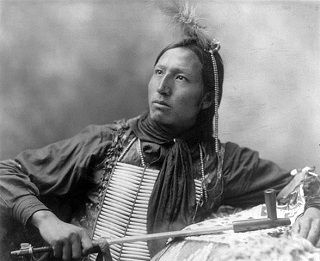We Need An Energy Policy — Discussion

Larry: Hi Craig. I just read your piece and am not sure what to say, so I’ll change the subject.
If you want to read a great book on another intractable problem, you might get a hold of “The Great Thirst: Californians and Water, 1770s – 1990s” by Norris Hundley, Jr. (who I just learned passed away last year). I bought the book probably 10-12 years ago while visiting Sacramento and finally read it. It tells the story beginning with how the Indians treated water as community property, and the early Spanish, while using it somewhat more intensively for agriculture, generally did the same. It wasn’t until the Anglos came along with the notion of private property and “get as much as you can as quickly as you can” that things drastically changed. It precedes the energy story, but is the same all over again. Some things, e.g., human nature, never change.
Craig: How very interesting. Not to split hairs, but I wouldn’t write it off to “human nature,” but rather “human nature in the 21st Century as the result of the pressures of Western Civilization.”
Btw, is it OK if I publish this discussion?
Larry: I hadn’t thought of it as “Western Civilization”, but I think almost everyone, Asians, Africans, etc., all have a very short time horizon these days, which leads to a focus on the individual instead of the greater good. Perhaps it was a little too sweeping a generalization to state that human nature never changes, but the period of change usually isn’t measured in single human lifetimes.
Sure it is ok.
Craig: Sorry, I wasn’t clear there. My point is that I dispute that greed and selfishness are really at the core of human nature. As our species came into being about 200,000 years ago and evolved to what it is today, cooperation and compassion have played enormously important roles; some scholars argue that they have been far greater components of our success than competition and aggression.
Also, keep in mind that there are small pockets of our civilization, e.g., the Native American communities, where cooperation is still the normative behavior. And the way this translates into sustainable living is shockingly clear; when these people make a decision to do something, or to refrain from doing something, it’s because they’ve contemplated the consequences of a minimum of five generations into the future. That type of thinking is almost entirely absent in Western Civilization.
